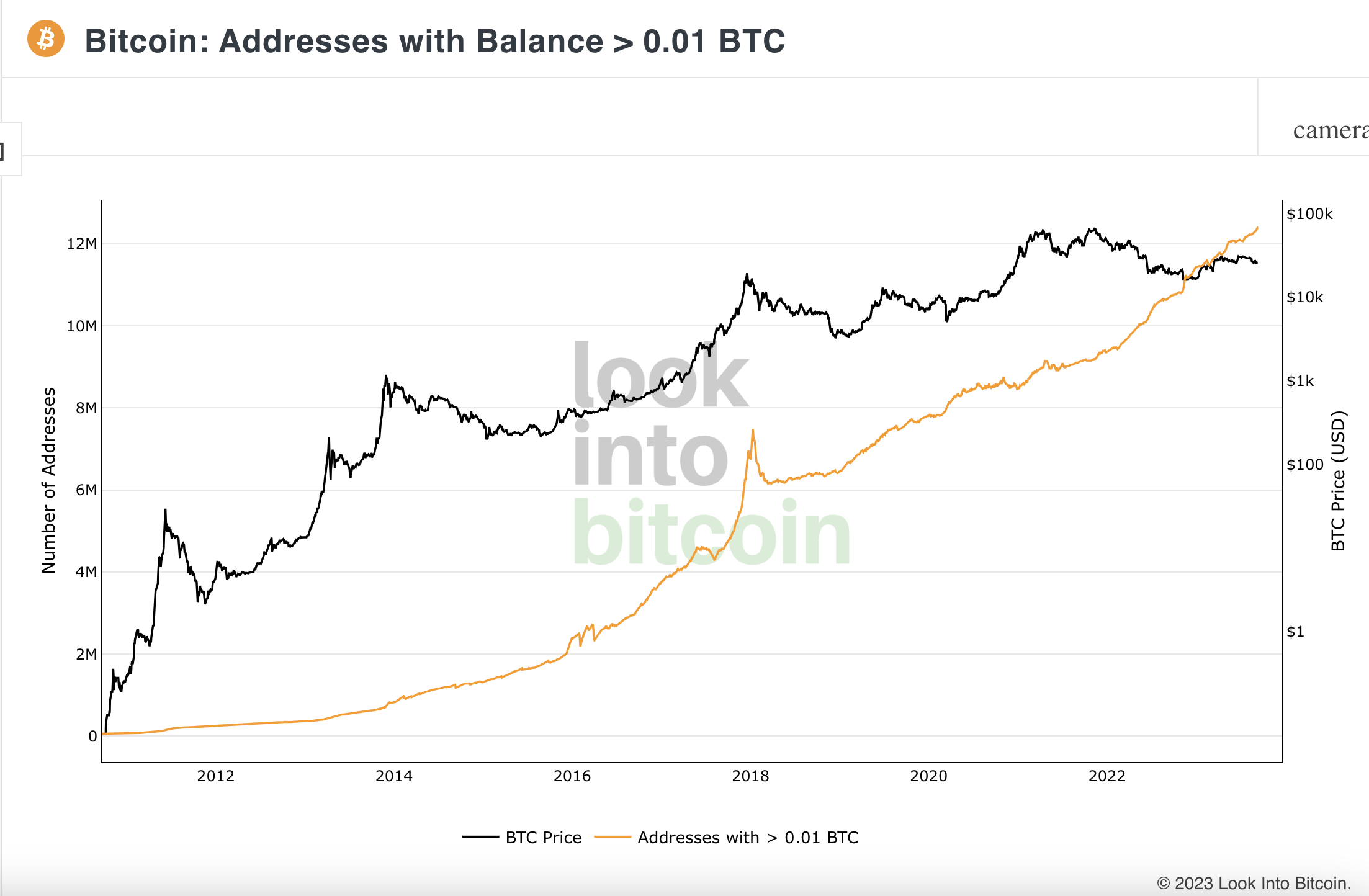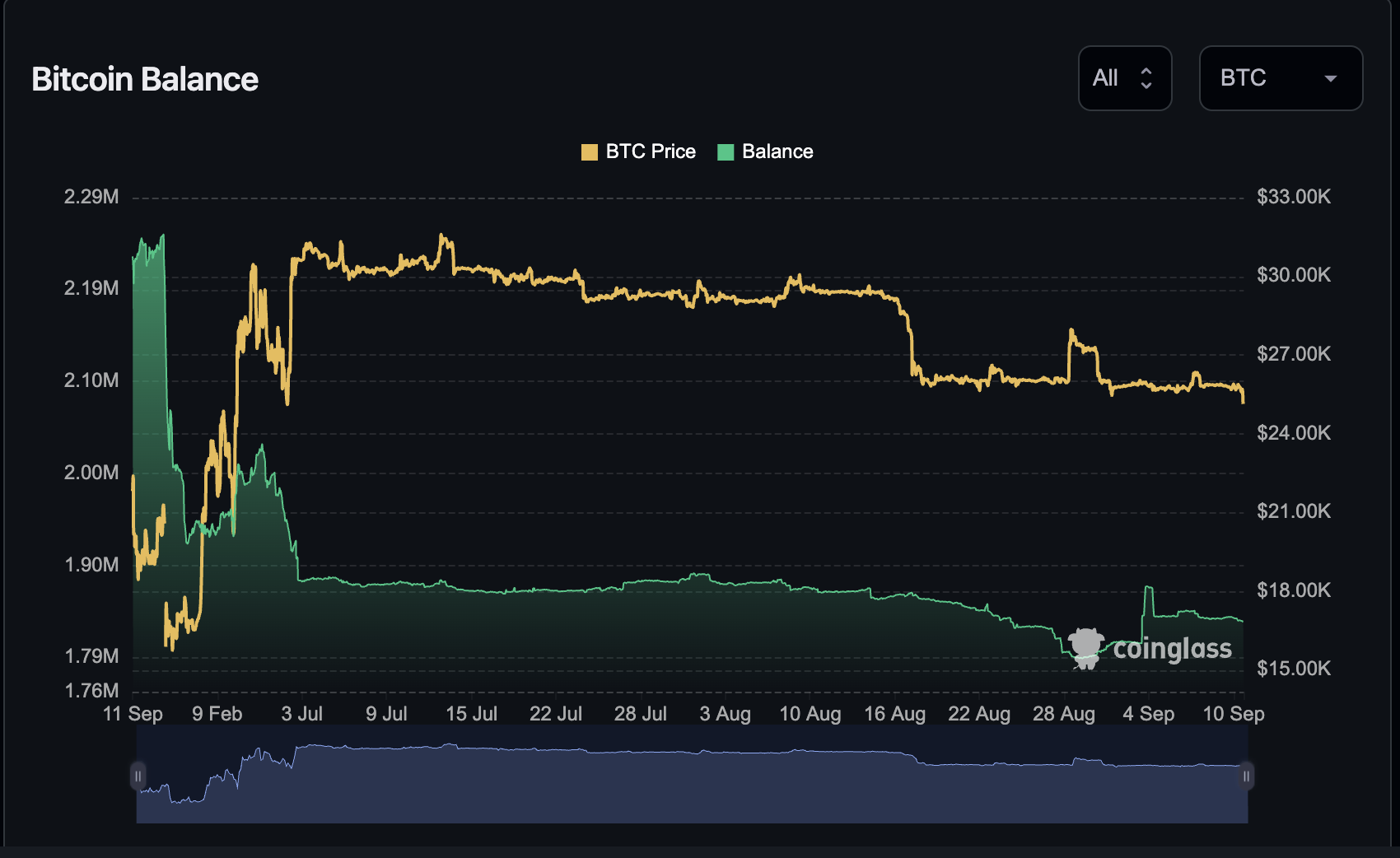Much has been made of Bitcoin’s (BTC) poor price action as of late, with many analysts making the case for further bearish momentum in the weeks ahead.
Yet it wasn’t too long ago that many investors and crypto pundits were raving about some note-worthy fundamental metrics that were, and continue to be, quite bullish.
Let’s take a look at three Bitcoin metrics that bulls might keep in mind.
Bitcoin’s hashrate hovers near a record high
Bitcoin’s hashrate, a metric which shows the amount of computing power dedicated to mining BTC, recently hit a record high, indicating the overall strength of the network and continued interest from miners. There has never been more security in Bitcoin, and it highlights the fact that miners appear to have faith in the future of the Bitcoin network.
BREAKING: #Bitcoin Hash Rate hits a new ATH! pic.twitter.com/kSD7LCCHkl
— Mister Crypto (@misterrcrypto) September 10, 2023
There’s some controversy as to whether or not a high hashrate constitutes a bullish signal. Investors equate the increased hashing power as a sign of an impending price increase, while others say the opposite, or that no correlation exists at all.
When looking at the past year’s data, there does appear to be a distinct relationship between hashrate and price.
This makes perfect sense given that miners will eventually begin to mine more when prices rise. Hahsrate and miners’ actions are also impacted by the Bitcoin difficulty adjustment that occurs roughly every two weeks. As hashrate rises, so does difficulty, meaning it requires more energy to mine 1 BTC.
A higher hashrate can only sustain lower prices for so long because miners’ cost of production increases with difficulty, while their profits diminish. Therefore, either the price must rise or hashrate will fall at some point.
Currently, price has fallen significantly relative to hash rate. The last time this happened in June, a rally followed.
See related: Bitcoin miners need BTC price over $98K by the halving — Analysis
In addition to hashrate rising, there appears to be renewed mining interest from nation-states. The country of Oman has announced plans to produce 7% of the Bitcoin hash rate less than two years from now.
JUST IN: Oman plans to produce 7% of the global #Bitcoin hash rate by June 2025! pic.twitter.com/HOJDlCcyBU
— Crypto Rover (@rovercrc) September 10, 2023
Bitcoin addresses holding 0.1 BTC all-time high
Bitcoin hodlers have remained strong throughout the bear market, with the number of wallets holding 0.1 BTC or more having reached 12 million for the first time. This trend has continued despite the current range-bound price action that is dotted with occasional corrections.

This demonstrates a degree of trust in the asset class in spite of everything else happening in the market. Adoption is growing even as prices disappoint.
While 0.1 BTC may have once been a trivial amount, today it’s significant, as this represents about $2,500 at current prices. The fiat value can be much higher when priced in other currencies. For 12 million entities to have amassed this much Bitcoin shows how seriously the world has begun to take such an investment.
Bitcoin balances held on exchanges trend down
The number of wallets holding significant amounts of Bitcoin has also risen while the amount of Bitcoin held on exchanges has been trending lower since the collapse of FTX in November 2022. This trend has ramped up since April of this year. This indicates that individuals are taking self-custody of their coins, possibly highlighting their disinterest in selling in the near future.

Over the last week, the BTC balance held on exchanges has declined from 1.88 million to 1.84 million. Historically, an influx of coins to exchanges has tended to precede a time of selling pressure, while outflows from exchanges have buoyed the Bitcoin price.
Taken together, these three metrics show that investors’ thesis for buying Bitcoin has grown stronger than ever. Bitcoin miners keep mining, hodlers keep hodling and individuals continue to take custody of their coins.
This article does not contain investment advice or recommendations. Every investment and trading move involves risk, and readers should conduct their own research when making a decision.



